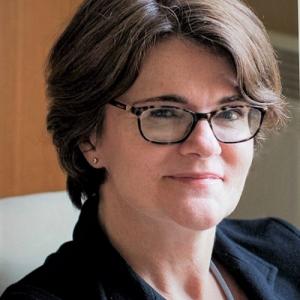Joint Conference on Schemes of Arrangement
Associated people
On 12 January 2017 the Commercial Law Centre and the National University of Singapore’s Centre for Law and Business jointly hosted a group of senior practitioners, scholars and judges at Harris Manchester College for a conference considering the Scheme of Arrangement as a debt restructuring tool. The conference considered not only the English Scheme of Arrangement, but also drew practical and comparative insights from equivalent procedures available in Singapore, India, Germany and Spain, and under the US Bankruptcy Code. The conference was the first joint project arising out of a new collaboration between the Commercial Law Centre and the Centre for Law and Business, and was organised by Professor Louise Gullifer (Oxford) and Professor Tan Cheng Han (NUS).

The first set of papers presented at the conference dealt with several aspects of the English Scheme of Arrangement. Kristin van Zwieten (Oxford) presented her paper on the historical evolution of the English Scheme of Arrangement, focusing particularly on its use as a restructuring tool in the nineteenth century. Jennifer Payne (Oxford) considered the role of the court in supervising and sanctioning Schemes, a crucial aspect of the Scheme procedure given the constraints on creditor rights that the process involves. Sarah Paterson (LSE)’s paper considered the important topic of valuation, reflecting on the Insolvency Service’s recent consultation on the Corporate Rescue Framework, and offering suggestions as to how the Scheme might be better adapted to changing market conditions.

A second set of papers offered comparative perspectives and reflections on a range of restructuring procedures available in major jurisdictions. Wee Meng Seng (NUS) described reforms in Singapore that seem set to move that jurisdiction away from English-style Schemes and toward something more akin to a US-style reorganisation procedure. Umakanth Varottil explored the possible reasons for the failure of the Indian Scheme of Arrangement to gain the currency and popularity that it has enjoyed in jurisdictions like Singapore or England and Wales, emphasising a range of institutional factors and the parallel development of other formal and informal resolution mechanisms. Reinhard Bork (Universität Hamburg) considered the ongoing incentives for German companies to use English Schemes given their options under domestic law. In the final paper of the day, Ignacio Tirado (Universidad Autónoma de Madrid) evaluated the variety of restructuring options available following recent reforms in Spain.

Each paper was commented upon by an expert in the field, and was followed by a lively discussion and debate amongst attendees. The discussion occurred against a backdrop of some uncertainty surrounding the future use and effectiveness of the English Scheme as a tool available to foreign companies. The European Commission’s recent proposal for a restructuring directive was also discussed, both in terms of the possible benefits new or amended procedures might bring – or fail to bring – and in terms of the changes that it might require in the jurisdictions under discussion.
The conference papers are being prepared for a special journal issue.
Speakers:
- Professor Reinhard Bork (Universität Hamburg)
- Ms Sarah Paterson (LSE)
- Professor Jennifer Payne (Oxford)
- Professor Ignacio Tirado (Universidad Autónoma de Madrid)
- Dr Umakanth Varottil (NUS)
- Dr Wee Meng Seng (NUS)
- Dr Kristin van Zwieten (Oxford)
Commentators:
- Professor Horst Eidenmüller (Oxford)
- Professor Francisco Garcimartin (Universidad Autónoma de Madrid)
- Mr Gabriel Moss QC (South Square)
- Dr Charles Qu (City University of Hong Kong)
- Mr Nick Segal (Freshfields Bruckhaus Deringer, Judge, Cayman Grand Court)
- Professor Jay Westbrook (University of Texas at Austin)



